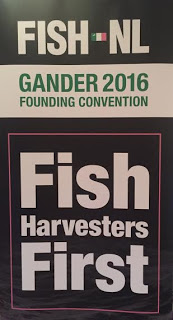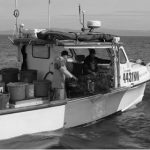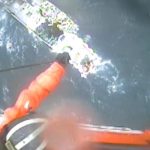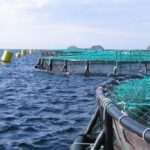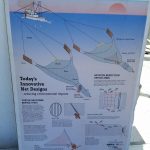Daily Archives: October 30, 2016
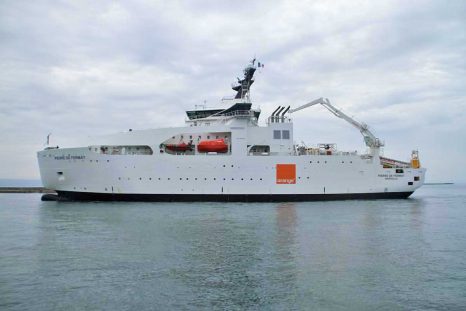
Do sharks like biting on submarine internet cables? The captain of a cable ship reveals all
That the internet is physical can be hard to grasp. Few people have experienced this fact as viscerally as Guillaume Le Saux, captain of a ship named Pierre de Fermat. It’s a state-of-the-art vessel that’s part of a fleet owned by French telecom company Orange, designed to lay and repair the optical fiber cables that criss-cross the world’s seabeds. The life of a cable-ship captain is pretty intense. Le Saux is on constant alert, ready to be dispatched to the middle of an ocean with a couple of hours’ notice. This can sometimes mean sailing into 20-foot waves, receiving ransoms, or fixing up a shark’s chew toy. When Le Saux arrives at the appointed spot at sea, he and his crew deploy Hector, the ship’s seven ton underwater robot, which will travel to the seabed, sometimes at depths of 5,000 meters. Hector’s job is to inspect the damage, bury newly laid cable on the sea-floor, or help bring damaged sections up to the ship’s jointing room, all controlled from the ship’s deck. Read the story here 17:28
Billionaire crony corporatist schemes – Financing “green” companies and enviro groups, getting richer off taxpayers and consumers
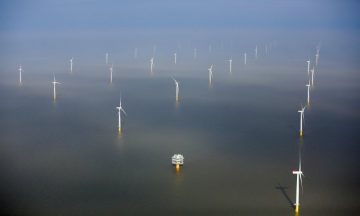 Shady cash from Vladimir Putin’s Russian energy oligarchs and other rich donors is being laundered through Bermuda-based lawyers and middlemen to “green” pressure groups, lobbyists and spinmeisters – to promote “green energy” schemes that bring billions of dollars from government agencies (and thus from us taxpayers and consumers) to a cabal of billionaires and crony companies. At the epicenter are hedge fund millionaire Nathaniel Simons, his wife Laura and their secretive Sea Change Foundation. “Investors” become even wealthier, as billions of dollars are transferred annually to environmentalists, scientists, politicians, bureaucrats and crony-corporatists in Renewable Energy & Climate Crisis, Inc. The alleged “urgency” of replacing fossil fuels with “eco-friendly renewable energy” (to prevent catastrophic manmade climate change) drives and excuses operations that define or barely skirt “corrupt practices.” The arrangements are too convoluted to explain in one article. Even the US Senate’s “Billionaires’ Club” report, Environmental Policy Alliance’s “From Russia with Love” study, and articles by investigative journalists like Ron Arnold and Lachlan Markay (here, here and here) barely scratch the surface. Washington is out of control. The IRS targeting conservative groups, Clinton Foundation and national security scandals, FBI pseudo-investigations and whitewashing, bureaucrats imposing $1.9 trillion in economy-crushing regulations that ruin families and communities – with virtually no perpetrators ever held accountable. Read the essay here 16:12
Shady cash from Vladimir Putin’s Russian energy oligarchs and other rich donors is being laundered through Bermuda-based lawyers and middlemen to “green” pressure groups, lobbyists and spinmeisters – to promote “green energy” schemes that bring billions of dollars from government agencies (and thus from us taxpayers and consumers) to a cabal of billionaires and crony companies. At the epicenter are hedge fund millionaire Nathaniel Simons, his wife Laura and their secretive Sea Change Foundation. “Investors” become even wealthier, as billions of dollars are transferred annually to environmentalists, scientists, politicians, bureaucrats and crony-corporatists in Renewable Energy & Climate Crisis, Inc. The alleged “urgency” of replacing fossil fuels with “eco-friendly renewable energy” (to prevent catastrophic manmade climate change) drives and excuses operations that define or barely skirt “corrupt practices.” The arrangements are too convoluted to explain in one article. Even the US Senate’s “Billionaires’ Club” report, Environmental Policy Alliance’s “From Russia with Love” study, and articles by investigative journalists like Ron Arnold and Lachlan Markay (here, here and here) barely scratch the surface. Washington is out of control. The IRS targeting conservative groups, Clinton Foundation and national security scandals, FBI pseudo-investigations and whitewashing, bureaucrats imposing $1.9 trillion in economy-crushing regulations that ruin families and communities – with virtually no perpetrators ever held accountable. Read the essay here 16:12
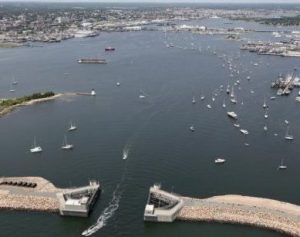
Martin Associates Study: Port of New Bedford has $9.8 billion value
The Port of New Bedford had a $9.8 billion economic value in 2015 and generates more than 36,000 jobs in the region, according to a new state-funded study that city and waterfront leaders hope will spur additional state investment in harbor dredging and other improvements. The study indicates the local port’s economic impact is comparable to that of the Port of Boston, which generated more than 50,000 jobs and had a total economic value of $4.6 billion in 2012, according to Martin Associates. The Pennsylvania-based firm also studied the Port of Boston’s economic impact in 2006, for the Massachusetts Port Authority (Massport), and has examined economic impacts of seaport activity in more than 120 U.S. and Canadian ports, from Seattle to Tampa. Martin Associates also conducted the $80,000 Port of New Bedford study, which was funded by a grant from the state’s Seaport Economic Council and included interviews and surveys with 147 companies involved in local harbor-related business. Ed Anthes-Washburn, port director for the city’s Harbor Development Commission, said much of that impact comes from the waterfront’s seafood processing industry — and called the study’s results eye-opening. Read the story here 14:01
The salt and pepper revolution

Jarvis Green: NFL Defensive End Turned Shrimp Entrepreneur
The first thing Jarvis Green wants to know, as we sit across the table from each other in the faculty cafeteria at Babson College, is which of the many nearby schools-that-start-with-the-letter-B houses my radio station. “Oh, Boston University?” He says. “I’m trying to do something with Boston University.” The next thing I know, we’re talking about Green’s plans to sell pre-cooked shrimp to college students with “value added sauce packets” so they “can’t mess it up.” And if those aren’t phrases you’d expect to hear from a former defensive end, you’re not alone. “I used to play football in the NFL. Won my two Super Bowls. I never thought I’d be doing this, you know. Learning price points. Understanding what it costs to get a shrimp out of the water.” Jarvis Green isn’t in the shrimp business because he needs the money. Sure, he could use more – he says we all could. Jarvis Green is in the shrimp business because … well, let’s start at the beginning. Read the story here 09:50

Iceland may become first nation ruled by ‘pirates’
The small island nation of Iceland may soon be the first modern country ruled by pirates. Not swashbuckling bandits with eye patches, but political pirates bent on rooting out corruption and transforming society through direct democracy. Their brand of politics is hacktivism meets revolution. Dominated by young people, the Pirates have grown from their founding in 2006 as a small Swedish movement battling restrictive copyright law into a quasi-mainstream political force. “The fisheries is a very big industry that has corruption problems,” says McCarthy on a drive through Keflavik, a city that used to be home to one of the most robust fishing industries in the country. “Tackling corruption in the fishing industry, and building a fair fisheries management system is absolutely crucial.” Quotas for cod and other fish were handed out by the government decades ago to the larger fishing companies in power, and they are now bought and rented out by large corporations for significant profit. Small fishermen can’t compete. Entire villages have had their quotas bought and moved away so there is no fishing left for the local population. Read the story here 08:11






